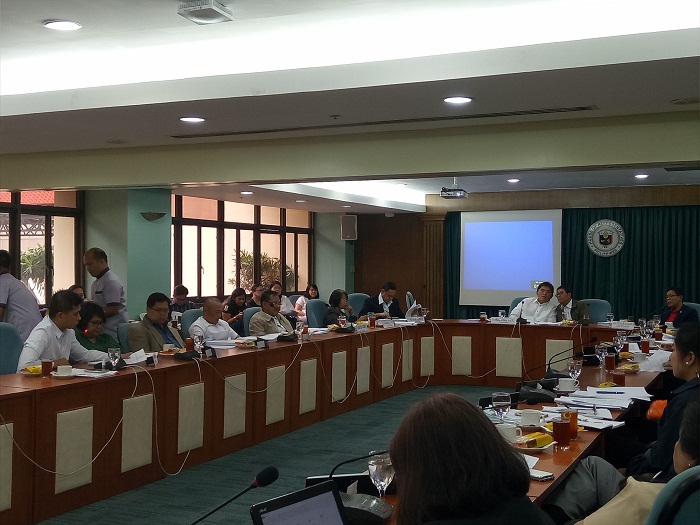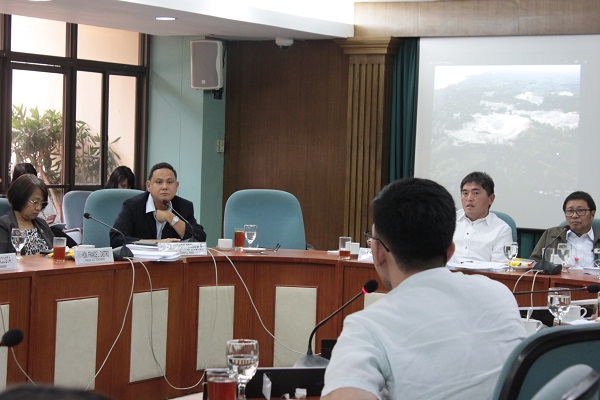After a year on hiatus, forest policies were deliberated in a recent congressional hearing led by House Committee on Natural Resources chairman Arnel Ty.
Environmental advocates lobbied for an alternative forest management policy which will supersede the current 1975 Revised Forestry Code. For over two decades, bills on sustainable forest management have been pending at the lower house.
Known as the Forest Resources Bill (FRB), the “revitalized” policy seeks to ensure the continued and efficient use of Philippine forest resources for present and future generations.
The FRB network advocates for the inclusion of critical provisions in Congress which include the protection of all natural and restored forests, standards for restoration areas, the management of watershed continuum, and a ‘functional’ forest definition.
“We depend on forests”
Rep. Lawrence Fortun from Agusan del Norte district recalled the times when their province was esteemed as the river of the South because of its abundant watersheds. Today, the country has the thinnest forest cover in Southeast Asia with only 6.8 million hectares remaining forest cover.
“We all depend on forests and biodiversity for our basic needs,” reminded Maria Belinda de la Paz, Haribon Chief Operating Officer.

“Natural resources are the bloodline of any industry,” echoed Maila Vasquez of the Philippine Wood Producers Association. She explained that local production fails to meet the needs of the domestic market due to high operation costs and export quota.
The standard description of what counts as forests was disputed as part of the main provisions of the bill. Advocates argue that the current definition of forests hides the real rate of deforestation and misleads people into complacency.
According to Haribon Foundation, a forest cannot be defined as having 10% forest cover in half a hectare because it clearly defies the role of forests in the environment, and raises questions as to whether forests are viewed mainly as a batch of trees for timber use.
“The forest is alive. It is an ecosystem and not just a collection of trees,” backed Rep. Arthur Defensor Jr. from Iloilo district.
Meanwhile, Rep. Arnolfo Teves from Negros Occidental district blasted the Department of Environment and Natural Resources (DENR) for failing to address problems about illegal logging and destructive quarries in their region.

In response, Forester Rey Thomas Cabigting of DENR assured that he will immediately submit an update concerning the issue. Moreover, he maintained that in order to help address the problem, the department has launched Lawin, a mobile app that assists forest rangers in patrolling.
Salvador Belaro Jr. of 1-Ang Edukasyon partylist, on the other hand demanded a nationwide forest status report from the department.
Chester Lobramonte of Haribon Foundation revealed that illegal loggers can freely carry out their lumbering activities when law enforcers are unarmed and the police command post is hours away from the forests.
“We need to have protectors in our forests to effectively enforce this bill,” urged Lobramonte, proposing the creation of a police forest command.
Rep. Fortun accepted to review the proposal while Chairman Ty assured that the bill will be tackled in detail on the next scheduled meeting.
Groups who are lobbying for the Forest Resources Bill include ABS-CBN Lingkod Kapamilya Foundation, Alternative Law Group, Alyansa Tigil Mina, Episcopal Commission on Indigenous Peoples, Foundation for the Philippine Environment, Green Convergence, Green Research, GMA Kapuso Foundation, Haribon Foundation, Philippine Association for Intercultural Development, Inc., Philippine Tropical Forest Conservation Foundation, Save Sierra Madre Network, Tanggol Kalikasan, and Tanim Kalikasan, Inc.

